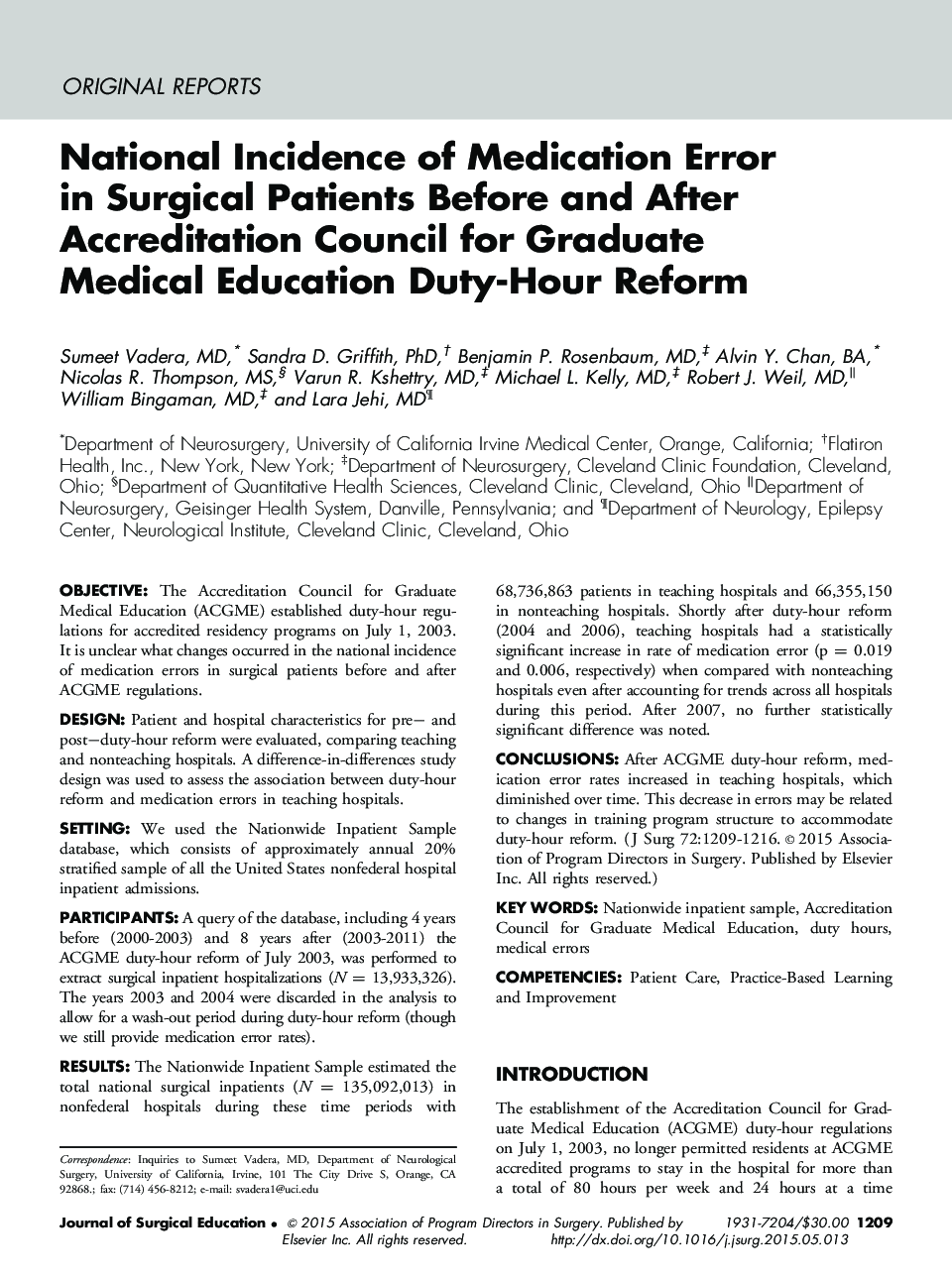| کد مقاله | کد نشریه | سال انتشار | مقاله انگلیسی | نسخه تمام متن |
|---|---|---|---|---|
| 4297493 | 1288322 | 2015 | 8 صفحه PDF | دانلود رایگان |
ObjectiveThe Accreditation Council for Graduate Medical Education (ACGME) established duty-hour regulations for accredited residency programs on July 1, 2003. It is unclear what changes occurred in the national incidence of medication errors in surgical patients before and after ACGME regulations.DesignPatient and hospital characteristics for pre− and post−duty-hour reform were evaluated, comparing teaching and nonteaching hospitals. A difference-in-differences study design was used to assess the association between duty-hour reform and medication errors in teaching hospitals.SettingWe used the Nationwide Inpatient Sample database, which consists of approximately annual 20% stratified sample of all the United States nonfederal hospital inpatient admissions.ParticipantsA query of the database, including 4 years before (2000-2003) and 8 years after (2003-2011) the ACGME duty-hour reform of July 2003, was performed to extract surgical inpatient hospitalizations (N = 13,933,326). The years 2003 and 2004 were discarded in the analysis to allow for a wash-out period during duty-hour reform (though we still provide medication error rates).ResultsThe Nationwide Inpatient Sample estimated the total national surgical inpatients (N = 135,092,013) in nonfederal hospitals during these time periods with 68,736,863 patients in teaching hospitals and 66,355,150 in nonteaching hospitals. Shortly after duty-hour reform (2004 and 2006), teaching hospitals had a statistically significant increase in rate of medication error (p = 0.019 and 0.006, respectively) when compared with nonteaching hospitals even after accounting for trends across all hospitals during this period. After 2007, no further statistically significant difference was noted.ConclusionsAfter ACGME duty-hour reform, medication error rates increased in teaching hospitals, which diminished over time. This decrease in errors may be related to changes in training program structure to accommodate duty-hour reform.
Journal: Journal of Surgical Education - Volume 72, Issue 6, November–December 2015, Pages 1209–1216
